Street Vendors of Egypt
By Salma Heram / Arab America Contributing Writer
While passing through the streets of Egypt, it is impossible to miss the plethora of street vendors found on every corner. Selling everything from produce and refreshing beverages to clothing and handmade items, they’ve become a staple in everyday life in Egypt. These merchants cater to those from all walks of life, from the group of young men looking for a refreshing drink after a long day at school to the housewife needing produce to make dinner on her way home from work. Below I’ve divided Egypt’s street vendors into different categories, encompassing the most common types in a sea of merchandise and goods available on Egypt’s busy streets. Enjoy these, along with some photos I’ve captured on my adventures through the streets of my homeland!
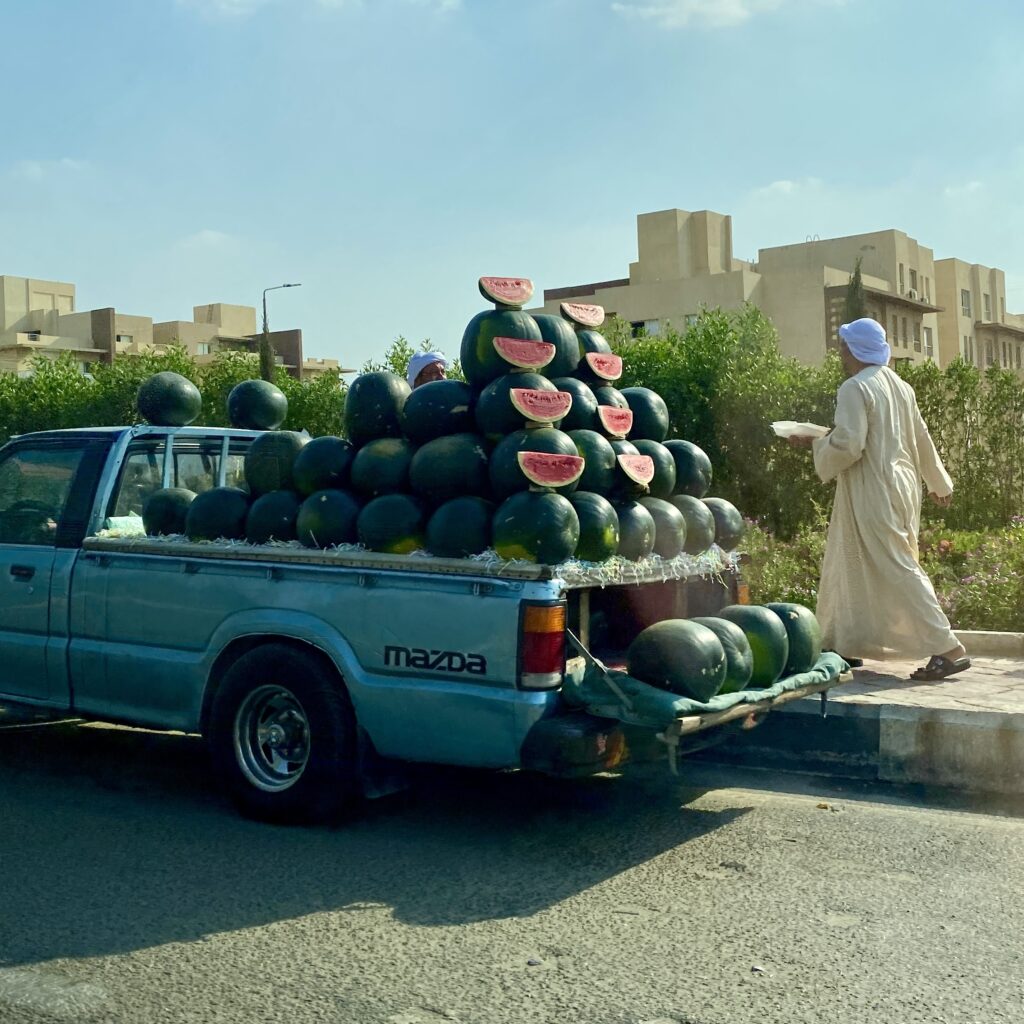
Produce
Egyptian merchants often sell farm-grown products in stalls or carts, and can either specialize in one fruit or vegetable or have a variety for sale. Vegetables like onions, cucumbers, tomatoes, lemons, and garlic are often sold in permanent stalls on street corners, catering to residents of their respective neighborhoods as well as those that happen to pass by in cars or on foot. During our visits to Egypt in my childhood, my mom would often take me with her on household errands, including buying ingredients for her famous garden salad from the khodrawati, or vegetable merchant, near our home.
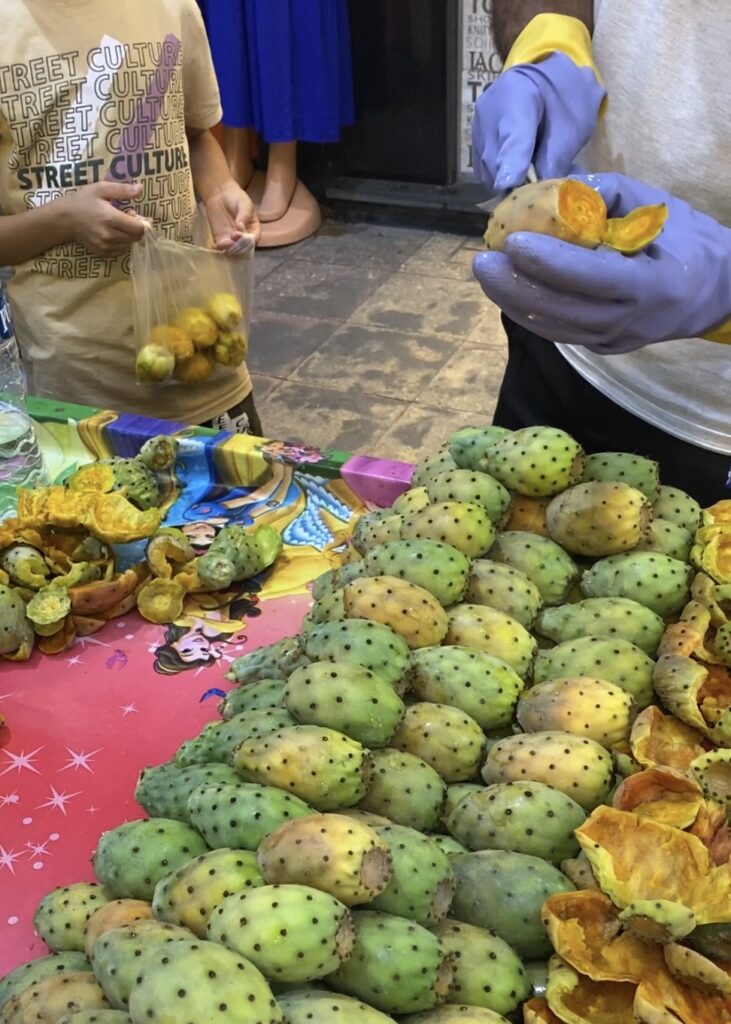
Salma Heram, @salamwithsalma on Instagram
Assorted fruits are also sold in similar stalls, laid out in crates for customers to take their pick, often buying by the kilo if not the whole crate from the fakahani, or fruit merchant. While these are convenient for when one is looking for a variety of fruits, Egyptian merchants also sell fruit on mobile carts or out of parked pickup trucks. These vendors often offer only one type of fruit, most commonly displaying teen shouki (prickly pear), mangoes, guavas or watermelon. Purchasing teen shouki is a particularly unique experience, as the fruit’s natural spikes are harmful to the unskilled handler, so these are often freshly peeled for the customer by the merchant. It is quite a sight to see the merchant’s skilled hands easily glide the blade through the fruit’s tough skin, barely looking at his fingers that have long-ago memorized the motions!
Handicrafts
One of the most common types of work in Egypt that takes heightened skill and laborious work is the creation of handmade crafts, including woven straw bags, pottery and clay jugs called ollal, and silver rings, as well as brass plates, lanterns, and other decorative items. These products are sold in a variety of methods, including mobile wooden trucks, the backs of pickup trucks, or in stalls at street bazaars and markets. Customers have the opportunity to try on items, ask questions about the product, and bargain the price with the owner, who is often the craftsman of the items themselves.
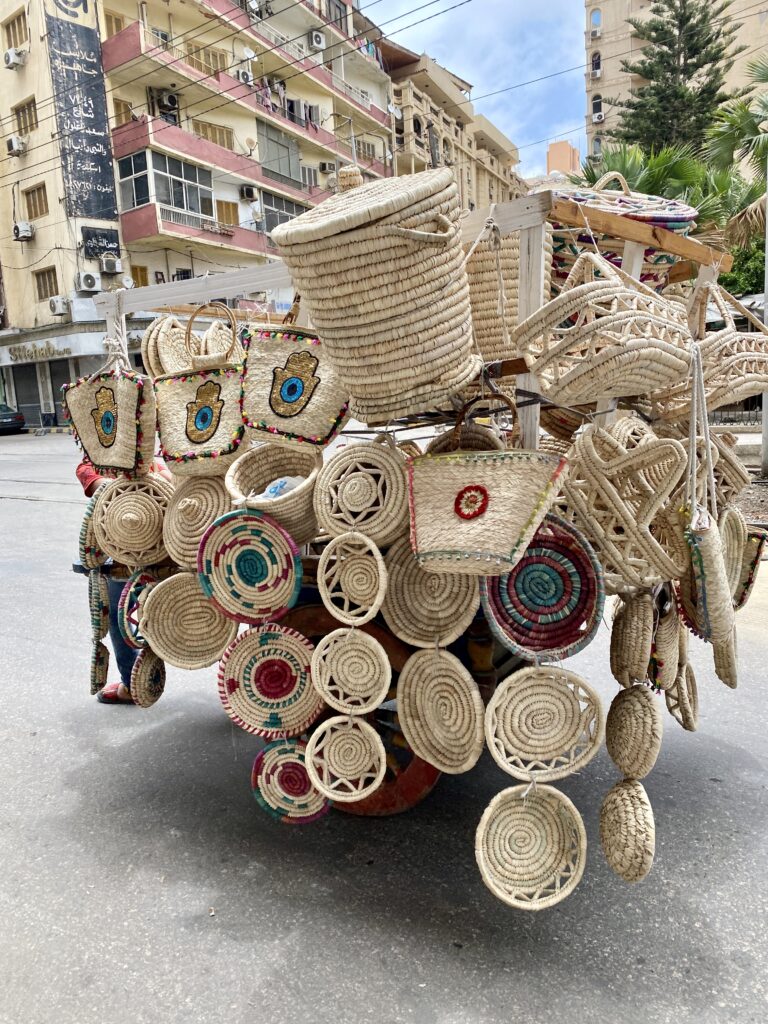
Salma Heram, @salamwithsalma on Instagram
Street Food
Egyptian street food is known the world around, from flavourful koshary to comforting foul and taameya sandwiches. While these are traditionally sold from mobile carts that set up shop on their chosen street corner, more and more Egyptian street food vendors are opting for permanent or brick-and-mortar locations. However, Egyptian street food carts still persist, often surrounded by customers enjoying their meal on a counter attached to the cart, while others choose to take their food to-go.
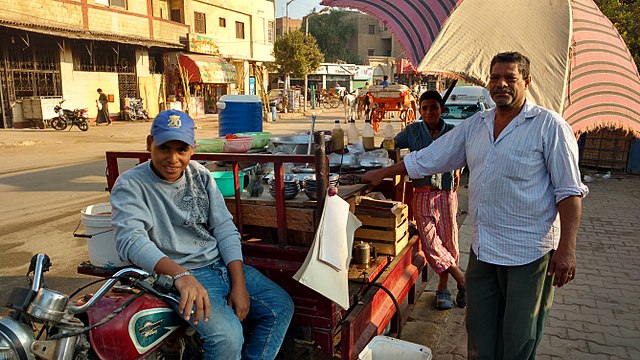
Drinks
While walking through the streets of Cairo, especially in the more common, central locations, you may come across a man carrying a large glass or metal jug slung across his chest and resting on his side. If you’re craving a refreshing drink to cool you off from the hot Egyptian sun, he is just the person you’re looking for. The juice that these vendors sell vary, from erk sous (licorice drink) to kharoub (carob juice) to karkade (hibiscus) to aseer assab (sugar cane juice), so you are sure to find something to your liking!
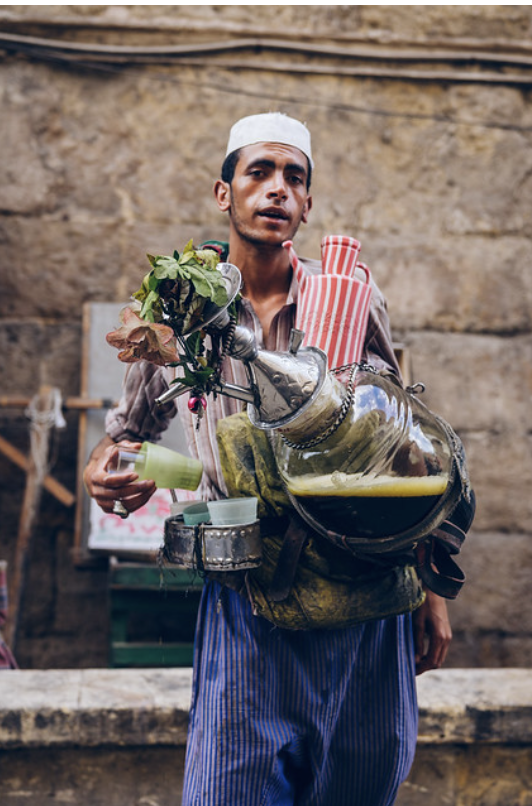
Clothing
Outdoor clothing markets are easy to find in Egypt, often encompassing an entire street, if not several of them. These offer a variety of different types of clothing, including pajamas, children’s clothing, stylish hijab-friendly clothing, hijabs and scarves, abayas, dresses, and men’s clothing. Vendors choose between laying clothes out on stalls or hanging them up on racks, allowing shoppers to look through their products for anything that catches their eye.
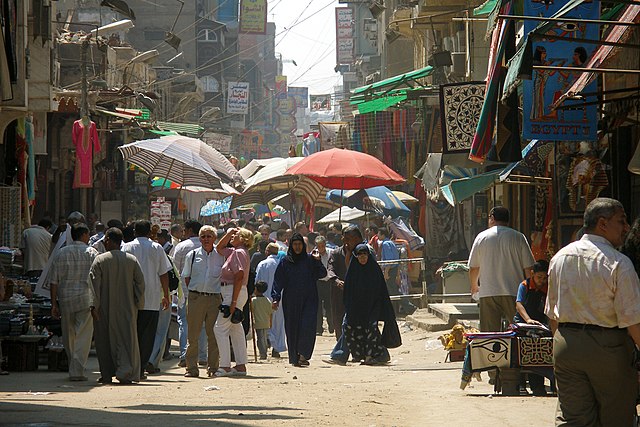
Conclusion
Egypt’s hardworking, amazingly skilled merchants and vendors have a lot to offer, contributing a great deal to the hustle and bustle of Egypt’s streets. On your next visit, be sure to patronize them; not only will you be supporting a small business owner, but you’ll get to enjoy the beauty and deliciousness of Egyptian goods.
Check out Arab America’s blog here!








